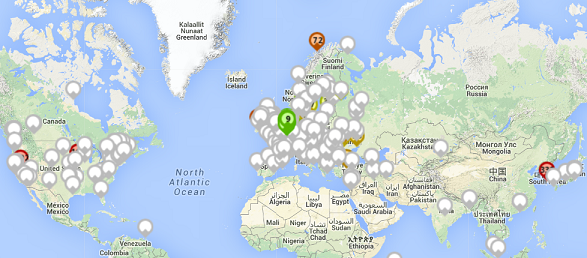So, lately I’ve spent my spare cycles on a tool to automate route servers configuration and, finally, ARouteServer came out: “A Python tool to automatically build (and test) feature-rich configurations for BGP route servers.”
Actually I don’t know how this idea came to my mind, I’ve never run an Internet Exchange nor a route server. Simpl(y|istically) I thought that an open source tool, which everyone can contribute to, with some good builtin features and based on an abstract definition of policies which are automatically converted into BGP-speaker-specific configuration files would have been useful to the community.
Thought to be used with any BGP speaker, currently it has been focused on the BIRD implementation to shorten development times and to have something that could be usable supports BIRD and OpenBGPD. TL/DR: a couple of YAML files (general policies + clients list) and some configuration knobs bring to a configuration that offers RPKI/IRRDB validation, BGP filtering best-practices, blackhole filtering capabilities, announcement control via BGP communities and other features.
A live testing framework also allows to run custom scenarios to simulate a real clients/server environment where it’s possible to test the configurations produced by the script.
Reviews and testing needed
Now, as said previously, I’ve never run a route server: the project needs reviews, advices and testing from the real life. Anyone who wants to contribute or share his/her point of views is more than welcome! Please open an issue on GitHub or drop me a message for any comment.
Presentations
RIPE74, 10 May 2017, Connect Working Group: video (9:53), slides (PDF)

